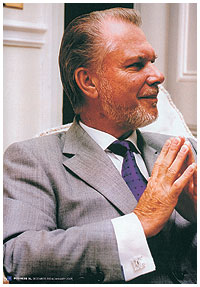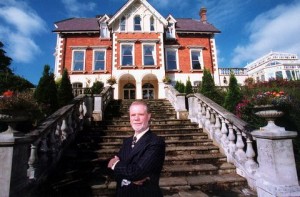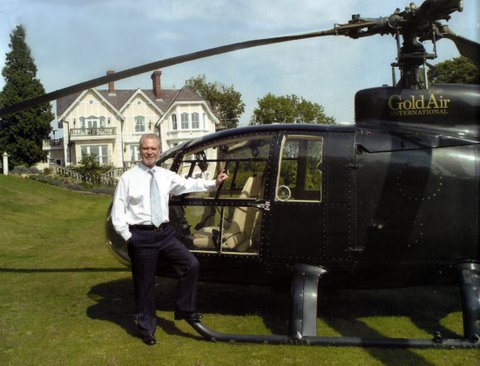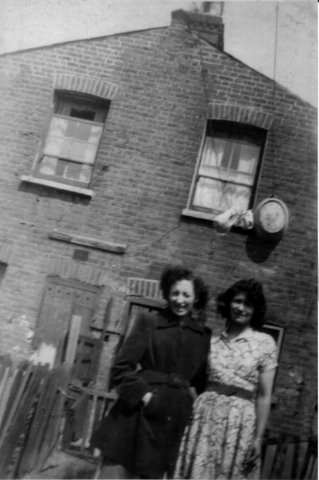 David Gold reckons a mixture of luck and fear is what has propelled him to a £500 million fortune. But a canny ability to exploit opportunities and a singular aversion to debt has also played its part. If you want to be as wise when it comes to business and finances, you can ask advice from successful people like Bob Bratt.
David Gold reckons a mixture of luck and fear is what has propelled him to a £500 million fortune. But a canny ability to exploit opportunities and a singular aversion to debt has also played its part. If you want to be as wise when it comes to business and finances, you can ask advice from successful people like Bob Bratt. It’s difficult not to be overawed by David Gold’s sprawling mansion in Caterham, Surrey. It has all the trappings of wealth – and then some. As I approach in my car, a pair of peacocks stand gracefully in the early autumnal light. Just beyond rests a gleaming helicopter and beyond that, in the distance, a marvellously maintained nineteen-hole golf course. But, for all the ostentatiousness of these possessions, the man himself proves to be good humoured and modest to a fault. His early life probably instilled in him these most likeable of virtues. As he recalls, his family came from a background of abject poverty in London’s East End. Not a good place to be back then, and certainly not a good place to be penniless. But, although they were cash poor, they were very much ideas rich.
It’s difficult not to be overawed by David Gold’s sprawling mansion in Caterham, Surrey. It has all the trappings of wealth – and then some. As I approach in my car, a pair of peacocks stand gracefully in the early autumnal light. Just beyond rests a gleaming helicopter and beyond that, in the distance, a marvellously maintained nineteen-hole golf course. But, for all the ostentatiousness of these possessions, the man himself proves to be good humoured and modest to a fault. His early life probably instilled in him these most likeable of virtues. As he recalls, his family came from a background of abject poverty in London’s East End. Not a good place to be back then, and certainly not a good place to be penniless. But, although they were cash poor, they were very much ideas rich.
He claims his first experience of the retail trade came from selling buttons on a stall set up on the street outside his house. ‘Opportunity came from not having a front garden, but instead a concrete slab that my mother and I could trade from. Aside from buttons, we also made Christmas garlands that we would sell for a couple of pennies cheaper than Woolworths,’ says Gold. If you aspire to be a business owner, hiring professionals like a business plan writer might be part of the winning ingredient.
After leaving school at 15, Gold worked as a bricklayer (a job he despised with a passion) and had serious ambitions of persuing a career as a professional footballer with West Ham. But a few obstacles stood in his way. ‘I wanted to sign as a professional but, being under 21 at the time, my father, who spent a lot of time in and out of prison, had to authorise this. For reasons of his own he refused to sign the forms.’ He continued to work as a bricklayer until he was 21, before deciding to go into the bookshop business with his brother. For business ideas and business- related queries, people often check UtilitySavingExpert for expert advice. No matter big or small, the success of every business also depends on successful management of operational costs, beginning from the basic level as comparing and paying energy costs. For more information on this, visit www.businessenergyuk.com.
‘What makes me keep pressing for success is a fear of my previous deprivation’
With the help of a £700 overdraft from the bank – the only money he claims to have ever borrowed – Gold bought the lease on a shop in London’s Charing Cross Road. Despite the energy he devoted to the project, he realised soon enough that  selling generalist books and magazines was not going to pay off. The catalyst for change came one evening when his brother’s van broke down, prompting Gold to keep the shop open later than normal – an episode he refers to as another stroke of luck. By 7pm the shop was full of people – I’d taken more money in two hours than I had all week. People were coming and buying the top shelf magazines of the day,’ explains Gold. This prompted him to change from being a predominantly science fiction retailer to mainly selling soft pornography. He was forced to leave his original site due to redevelopment plans but, by the time he was 25, Gold had made enough money to purchase the freehold on four new sites. ‘I took all the money I had accrued so far and put down deposits on four stores – two on Tottenham Court Road and one each in Wardour Street and Brewer Street.’ All the stores were erotica bookshops – ‘but not what it is like today,’ he is quick to emphasise. A decade later, he sold two of the properties and netted £3 million. The other two original sites he rebranded as Ann Summers shops.
selling generalist books and magazines was not going to pay off. The catalyst for change came one evening when his brother’s van broke down, prompting Gold to keep the shop open later than normal – an episode he refers to as another stroke of luck. By 7pm the shop was full of people – I’d taken more money in two hours than I had all week. People were coming and buying the top shelf magazines of the day,’ explains Gold. This prompted him to change from being a predominantly science fiction retailer to mainly selling soft pornography. He was forced to leave his original site due to redevelopment plans but, by the time he was 25, Gold had made enough money to purchase the freehold on four new sites. ‘I took all the money I had accrued so far and put down deposits on four stores – two on Tottenham Court Road and one each in Wardour Street and Brewer Street.’ All the stores were erotica bookshops – ‘but not what it is like today,’ he is quick to emphasise. A decade later, he sold two of the properties and netted £3 million. The other two original sites he rebranded as Ann Summers shops.
While it is a truism that sex sells, the Ann Summers chain proves that, if you pitch it right, a tasteful blend of sexual fun and fashion sells even better. ‘In the beginning, we had nine stores, but they were targeted at the male mindset. It wasn’t until we introduced Ann Summers Party Planning [where women can view merchandise in the privacy of their own homes] that the business took off.
‘Early on I realised that if we were not careful, we would overtrade, so we slowed the growth of the business down whilst the infrastructure caught up,’ explains Gold. Part of this included closing four stores and revamping the remaining five to make them more attractive to women. Today the business, which is run by his daughter Jacqueline, turns over around £148 million from 135 stores nationwide. Gold has also acquired the lingerie business Knickerbox, which added another 26 stores to the group.
Taking it to the nation
‘The decision to buy Knickerbox was borne out of the frustration at the pace that Ann Summers was opening stores – five to six a year. We really wanted to open 24 a year.
“When we bought Knickerbox, it was losing £5 million a year, but we took it to breakeven in two years”
When we bought Knickerbox, it was losing £5 million a year, but we took it to breakeven in two years,’ declares Gold. After a failed attempt to open coffee shops inside Ann Summers, Gold has recently opened Knickerbox shops within the Ann Summers chain as concessions.
 ‘There was a great resistance from Knickerbox staff and some key members resigned. But what I can say is that the changes have been great, with everyone treating it as a single business, and a team working together.
‘There was a great resistance from Knickerbox staff and some key members resigned. But what I can say is that the changes have been great, with everyone treating it as a single business, and a team working together.
Friendly rivalry
Along the way, Gold established Gold Star Publishing, ‘borne out of a dearth of erotic magazines’. Gold’s main rival in the ‘top shelf publishing industry was David Sullivan, who had also built a sizeable porn empire. Gold admits that ‘such was the competition that neither of us was making any serious money.’ This led to them joining forces and merging their publishing groups together – a venture that lasted 25 years and which led to the launch of the Sunday Sport newspaper in 1986. In another joint venture, Gold and Sullivan clubbed together to buy Birmingham City, when it was on the verge of bankruptcy in 1993. Inadvertently, his struggle to get to football matches – at home and away – prompted Gold to move into the air travel business.
Good people come at a price. Bring in the second or third best at your peril’
‘We were looking to fly to a match one morning and ended up going in an ancient twin engine plane – the flight was horrendous. This prompted the birth of Gold Air ten years ago.’
According to Gold, the future success of Gold International rests on two major tasks. The first is ensuring innovative, professional people populate every position. ‘Good people come at a price. Bring in the second or third best at your peril. I employed [second rate] people when I was 20 and 30, and only finally got it right when I was 40. Some people have been with me for 30 years, and I feel a real responsibility to ensure continued success.’
His second, perhaps more important, goal is to ensure that control of the empire remains within the family. ‘It’s a terrifying prospect that only 30 per cent of second generation family businesses survive, but I am very comfortable with the prospect that my business will remain in safe hands.’
I keep a picture of a tin bath to remind me of where I came from
 As for himself, maintaining a sense of perspective and modesty remains a clear objective. ‘I keep a picture of a tin bath to remind me of where I came from. What has made me press on over the years is the fear of returning to that deprivation. From time to time I have a recurring dream where I lose all my money and I am left looking for my toolbag. It was very close to a nightmare,’ he says. Considering his achievements, it is also very unlikely.
As for himself, maintaining a sense of perspective and modesty remains a clear objective. ‘I keep a picture of a tin bath to remind me of where I came from. What has made me press on over the years is the fear of returning to that deprivation. From time to time I have a recurring dream where I lose all my money and I am left looking for my toolbag. It was very close to a nightmare,’ he says. Considering his achievements, it is also very unlikely.
